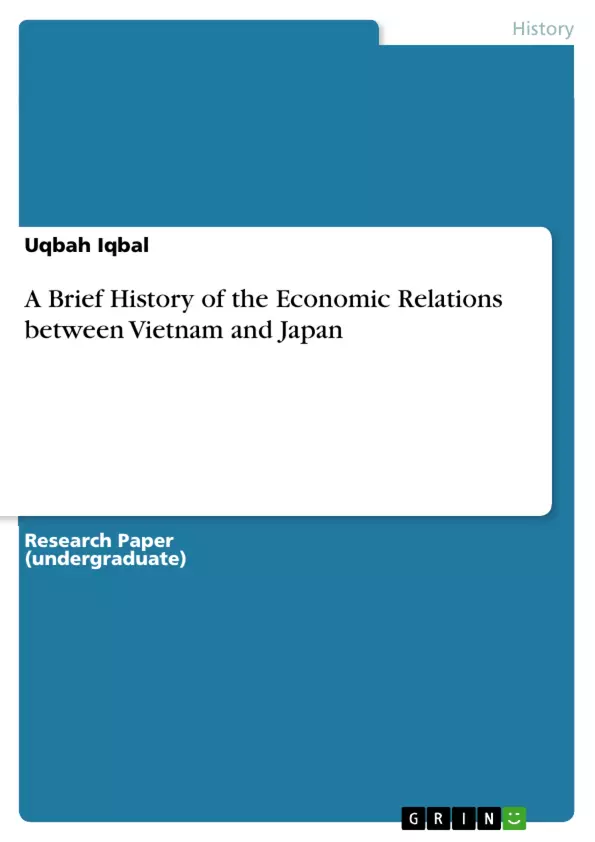Japan cautious in establishing closer ties in the form of political and trade with Vietnam because Vietnam suspicion of Japanese economic power and its relationship with the United States. In May 1978, two of Japan's economic mission will visit Vietnam at the end of the month to discuss the promotion of trade and investment in development projects in Vietnam. In October 1987, Japan diplomatic source in Hanoi said Japanese companies that were very active in Vietnam will slow the pace of their investments as a result of pressure from ASEAN and the United States. In December 1989, Japanese companies are actively trying to promote trade and investment activities in Vietnam despite the continued freezing of economic aid to the country by the Japanese government.
Table of Contents
- A Brief History of Vietnam-Japan Economic Relations
- Japan's Cautious Approach
- Economic Missions and Investments
- Trade and Investment Growth
- Oil and Gas Cooperation
- Financial Assistance and Development
- Trade Expansion and Joint Ventures
- Strengthening Economic Ties
Objectives and Key Themes
This text examines the development of economic relations between Vietnam and Japan from the late 1970s to the mid-1990s. It analyzes the factors that influenced the growth of trade, investment, and aid between the two countries, highlighting the challenges and opportunities that emerged during this period.
- Evolution of Vietnam-Japan Economic Relations
- Influence of Political and Geopolitical Factors
- Role of Trade, Investment, and Aid in Economic Development
- Impact of US Sanctions and Embargoes
- Strategic Partnerships and Joint Ventures
Chapter Summaries
The text chronologically explores the development of Vietnam-Japan economic relations, beginning with Japan's cautious approach due to Vietnam's suspicion of Japanese economic power and its relationship with the United States. It then examines the gradual increase in economic missions, investments, and trade between the two countries, particularly in the areas of oil and gas exploration. The text also highlights the impact of US sanctions and embargoes on the relationship, and the subsequent resumption of Japanese aid and investment. The text concludes by analyzing the growth of joint ventures, strategic partnerships, and trade expansion, emphasizing the increasing importance of economic cooperation between Vietnam and Japan.
Keywords
The primary focus of this text is on the development of Vietnam-Japan economic relations, encompassing key concepts such as trade, investment, aid, joint ventures, strategic partnerships, US sanctions, and economic cooperation. The text also examines the role of political and geopolitical factors in shaping the relationship, highlighting the influence of the US embargo and the Cambodian peace agreement.
Frequently Asked Questions
Why was Japan initially cautious in establishing ties with Vietnam?
Japan was cautious due to Vietnam's suspicion of Japanese economic power and Japan's close relationship with the United States.
What happened regarding Japanese investment in Vietnam in October 1987?
Japanese companies slowed the pace of their investments as a result of diplomatic pressure from ASEAN and the United States.
Did Japanese companies stop trading with Vietnam in 1989?
No, despite the Japanese government freezing economic aid, Japanese companies actively tried to promote trade and investment activities during that time.
What role did oil and gas play in the economic relations?
Oil and gas exploration was a key area of cooperation that helped drive the growth of trade and investment between the two countries.
What were the main factors influencing Vietnam-Japan economic relations?
Key factors included political and geopolitical influences, US sanctions and embargoes, the Cambodian peace agreement, and the strategic interest in joint ventures.
- Citation du texte
- Uqbah Iqbal (Auteur), 2015, A Brief History of the Economic Relations between Vietnam and Japan, Munich, GRIN Verlag, https://www.grin.com/document/310709



